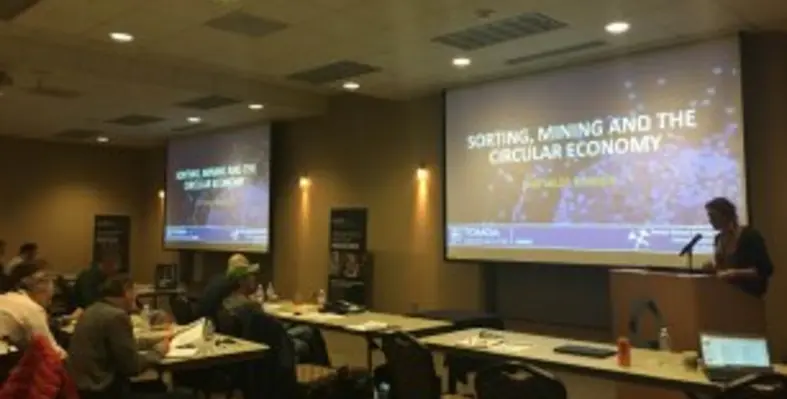TOMRA?s seminar on sustainable mining solutions and sensor-based sorting addresses major challenges of the mining industry, including increasing pressure to be more financially streamlined and radically more efficient, while addressing environmental and sustainability concerns
Sensor-based sorting (SBS) is seen to be an increasingly important tool both to formulate optimal solutions for greenfields projects and to help conquer challenges for keeping brownfields operations viable, converting the mining operation?s resource into value.
TOMRA?s specialists were joined by guest speakers, all experts in their fields, to encompass all aspects of a sensor-based sorting operation with a broad range of topics that included sorting technology, applications, plant design, test work and economic considerations. This provided participants with insights into the technology, how to successfully implement sorting into a plant, interpret test results and optimise flowsheets.
Assessing the feasibility and setting objectives for SBS
Corby Anderson, Harrison Western Professor at the Colorado School of Mines, opened the seminar with a riveting introduction of recycling, recovery and sorting. The next talk focused on sensor-based sorting technologies and their applications, as well as highlighting fully operational SBS plants in the mining industry.
Mathilde Robben of TOMRA explained the importance of setting objectives for SBS, and the financial and technical aspects to evaluate. The most critical factors to consider when assessing the feasibility of sorting are throughput requirements, particle size and potential water usage, as well as the mineralogy of the ore. Having a clear understanding of where sorting can benefit in the process is paramount when planning to use this technology.
SBS is expected to have a huge positive impact on the downstream operations of a flowsheet, as more waste is rejected from the process upstream. This means that waste is not carried through the rest of the process, resulting in significant savings in energy, water and chemicals. A further benefit is the reduction of fine tailings that are environmentally challenging to manage.
The role of mining and sorting in the circular economy
TOMRA sees SBS as providing an opportunity to produce the minerals and metals we need in a sustainable and economically feasible way. By rejecting waste and concentrating the valuable material early in the flowsheet, the resources that would traditionally be used to further crush, grind, float or leach the waste material are saved so that natural resources are utilised in the most efficient and sustainable way. In addition, SBS also has a role to play in the recycling industry to generate a second life for materials.
The considerations of flowsheet design and testing were particularly appreciated. Vera Gella, metallurgist at BBA, commented, ?For us, the test work preparation and flowsheet design are most relevant to what we do every day and being able to quickly assess whether or not sorting is applicable to a given project. Like J?rn pointed out, if you pick the wrong crushing/SBS circuit design upfront, it can drastically change the outcome of a project. It?s critical to think carefully about how to get the most out of your sorting circuit.?








